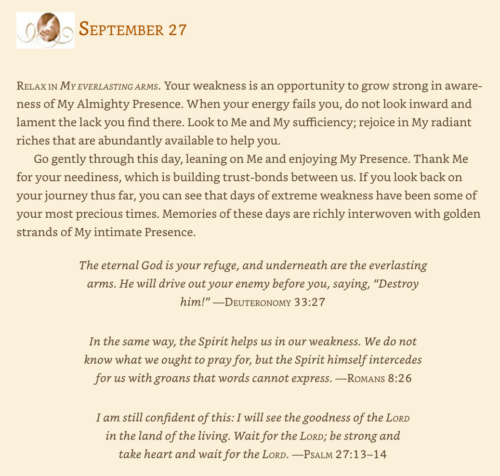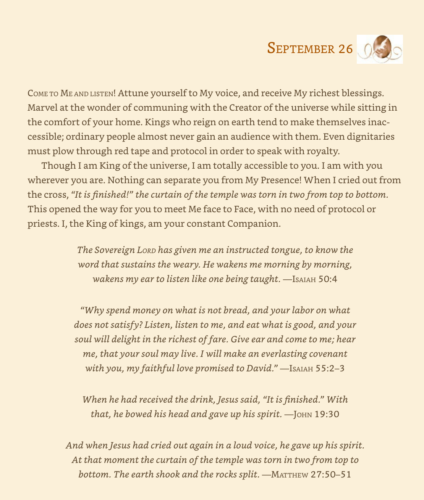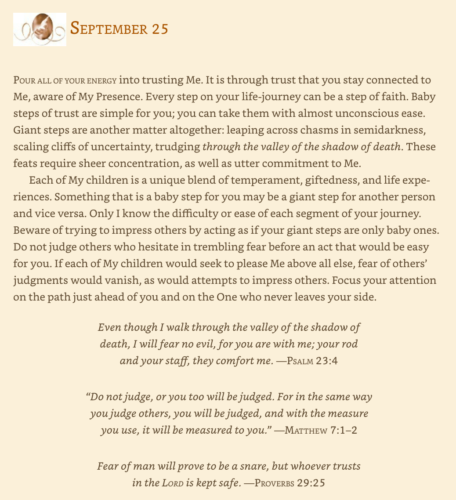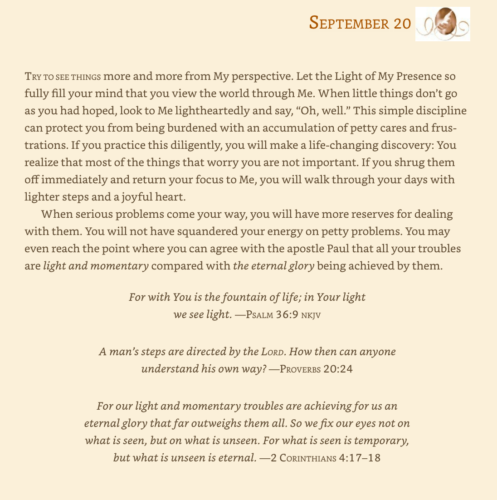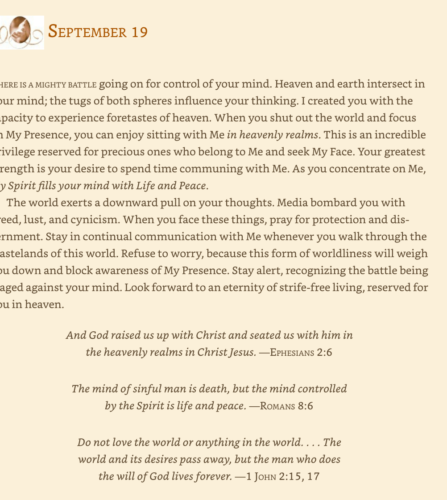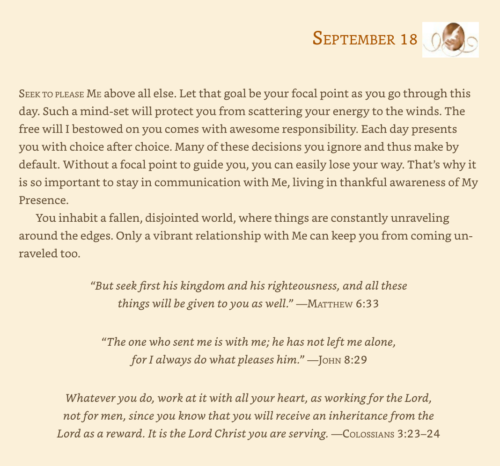Barbara Holmes identifies sacred space beyond our usual holy environments:
We are told that Jesus hung out with publicans, tax collectors, and sinners. Perhaps during these sessions of music, laughter, and food fellowship, there were also sacred moments when the love of God and mutual care and concern became the focus of their time together. Contemplation is not confined to designated and institutional sacred spaces. God breaks into nightclubs and Billie Holiday’s sultry torch songs; God tap dances with Bill Robinson and Savion Glover. And when Coltrane blew his horn, the angels paused to consider.
Some sacred spaces bear none of the expected characteristics. The fact that we prefer stained glass windows, pomp and circumstance … has nothing to do with the sacred. It may seem as if the mysteries of divine-human reunion erupt in our lives when, in fact, the otherness of spiritual abiding is integral to human interiority. On occasion, we turn our attention to this abiding presence and are startled. But it was always there.
Dr. Holmes finds a welcome and fertile space for the Divine in the arts:
Art can amplify the sacred and challenge the status quo. The arts help us to hear above the cacophony in the midst of our multitasking. The arts engage a sacred frequency that is perforated with pauses. Artists learned … there were things too full for human tongues, too alive for articulation. You can dance and rhyme and sing it, you almost reach it in the high notes, but joy unspeakable is experience and sojourn, it is the ineffable within our reach.
When you least expect it, during the most mundane daily tasks, a shift of focus occurs. This shift bends us toward the universe, a cosmos of soul and spirit, bone and flesh, which constantly reaches toward divinity. Ecclesial organizations want to control access to this milieu but cannot. The only divisions between the sacred and the secular are in the minds of those who believe in and reinforce the split….
All things draw from the same wellspring of spiritual energy. This means that the sermonic and religious can be mediated through a saxophone just as effectively as through a pastor…. How can this be?… [Can] tapping feet and blues guitar strokes … evoke the contemplative moment and call the listener to a deeper understanding of inner and outer realities?… The need to create impermeable boundaries between the sacred and the secular is … a much more recent appropriation of western values….
Historically, most efforts to wall off the doctrinal rightness and wrongness of particular practices failed. Instead, hearers of the gospel enculturated and improvised on the main themes so as to tune the message for their own hearing. Given Christianity’s preferential option for the poor, the cross-pollination of jazz, blues, and tap with church music and practices could be considered the epitome of missional outreach and spiritual creativity.
___________________________________________________
Sarah Young
Hebrews 12:1-2 NLT
God’s Discipline Proves His Love
12 Therefore, since we are surrounded by such a huge crowd of witnesses to the life of faith, let us strip off every weight that slows us down, especially the sin that so easily trips us up. And let us run with endurance the race God has set before us. 2 We do this by keeping our eyes on Jesus, the champion who initiates and perfects our faith. Because of the joy awaiting him, he endured the cross, disregarding its shame. Now he is seated in the place of honor beside God’s throne.
Additional insight regarding Hebrews 12:1: This “huge crowd of witnesses” is composed of the people described in Chapter 11. Their faithfulness is a constant encouragement for us. We do not struggle alone, and we are not the first to struggle with the problems we face. Others have run the race and won, and their witness stirs us to run and win also. What an inspiring heritage we have
Additional insight regarding Hebrews 12:1: Long-distance runners work hard to build endurance and strength. On race day, their clothes are lightweight and their bodies lean. To run the race that God has set before us, we must also strip off the excess weight that slows us down. How can we do that? (1) Choose friends who are also committed to the race. Wrong friends will have values and activities that may deter you from the course. Much of your own weight may result from the crowd you run with. Make wise choices. (2) Drop certain activities. That is, for you at this time these may be weight. Try dropping them for a while; then check the results in your life. (3) Get help from addictions that disable you. If you have a secret “weight” such as pornography, gambling, or alcohol, admit your need and get help today.
Additional insight regarding Hebrews 12:1-4: The Christian life involves hard work. It requires us to give up whatever endangers our relationship with God, to run with endurance, and to struggle against since with the power of the Holy Spirit. To live effectively, we must keep our eyes on Jesus. We will stumble if we look away from him to stare at ourselves or at the circumstances surrounding us. We should be running for Christ, not ourselves, and we must always keep him in sight.
